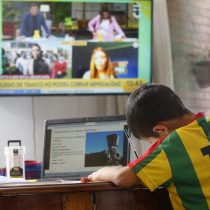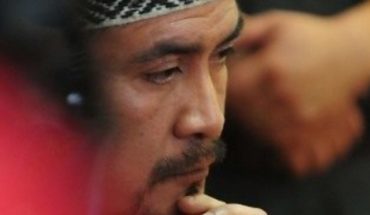
In April 2016 Law 20.911 was enacted which established the obligation of the Ministry of Education to provide educational institutions with the guidance and pedagogical resources necessary to implement citizen training plans, cross-cutting to the school curriculum. Today, schools and high schools – in parvular, basic and middle education – must implement these plans, adapting them to each level of education. In addition, a new subject of Citizen Education has been launched, mandatory for 3rd and 4th half.
This Law was mainly stimulated by the results of the so-called Engel report, and was implemented in the midst of one of the deepest crises of representativeness and political legitimacy in Chile’s history, to which it added to the progressive deterioration of the public imaginary over the political class and its institutions. This crisis “above” has had as its counterpart a rise in the political participation of social actors, where young people and students have played a key role. That is why the law represented a strategic opportunity to democratize school cultures and develop spaces for coexistence and participation, through plans that each school developed with autonomy.
All these plans and actions seek the promotion of active citizenship, the assessment of the social and cultural diversity of the country, respect for human rights and student participation in issues of public interest. This design assumes that citizen training cannot rest in a single subject. All disciplines, cross-cutting, must contribute to this objective. But this task cannot be dispersed in anyone’s land either, and must be rooted in systematic and comprehensive planning throughout the establishment.
Recognizing the significant progress that this Law has represented, it is necessary to evaluate outstanding and forgotten aspects in its implementation. Dialogue with the teaching world reveals serious difficulties in adapting citizen training to the particular characteristics of each region and social sector of the country. The curricular and pedagogical relevance of citizen training plans is challenged by the enormous social and economic inequalities that are felt when proposing and implementing actions that are significant in the most dissimilar school spaces.
To address this challenge, the same Law sent the Ministry of Education to support teacher training processes. This action has been shown to be in deficit or almost absent during the current government. In the absence of promotion of citizen training as a strategic axis of democratic education, a number of authoritarian policies are added, such as “safe classroom” or actions of censorship of school materials and teacher persecution under the accusation of politicizing the classroom, which represents a setback to the times when schools were used as devices of ideological purification by the dictatorship.
It is therefore imperative that the implementation of the Law is not left in the dead letter and that permanent, robust and well-structured mechanisms are generated to strengthen the initial and continuous training of the Magisterium, so that the objectives sought by this legislation can be effectively achieved. This task implies that good citizenship training is not limited to the transmission of knowledge, but must allow the active experience of democratic life in school. If citizen training fails to shape the forms of organization and coexistence in school institutions, little will be achieved in this area.
Another worrying aspect is that institutions without competence in educational and pedagogical matters intervene in this area, in an unqual qualified manner. In particular, it is strange to the objectives of the Act that the Navy has initiated a “Citizen Training Program” for schoolchildren from 8th Basic to 4th Middle, with the endorsement of the Undersecretary of Defense and MINEDUC itself. This intervention by the armed forces in educational matters is not consistent with the attient axes of the school curriculum, and installs a non-deliberative institution in a space where it is civility, in particular educational institutionality, that must define the contents and programs that are implemented in this field.
Citizen training is necessary to address urgent problems, such as understanding the current constituent process, social legitimacy in the face of distribution andpandemic vaccines, and the increasing digitization of social and productive life; providing prudential criteria to help children be able to distinguish between verifiable sources of information and scientifically unverified opinions. This implies that schools update their views on minimum or restricted citizenship, and promote active and expansive citizenship as a basic exercise over responsibility for the promotion of human rights.
In short, we need a school to generate competences for the active promotion of human rights, especially children and adolescents, to promote the culture of peace and non-violence, to weigh the social value of taxes and tax justice, to highlight the secularity of the state as an essential principle for common life, and to strengthen education for environmental sustainability. It is these axes that should have been regarded as central to the government’s educational management, but which, unfortunately, in the last three years have been absolutely peripheral to the ministerial agenda.
(*) Beatriz Areyuna and Alvaro Ramis, dean of the Faculty of Pedagogy and Rector of the Academy of Christian Humanism University, respectively.
The content poured into this opinion column is the sole responsibility of its author, and does not necessarily reflect the editorial line or position of El Mostrador.





